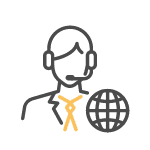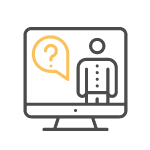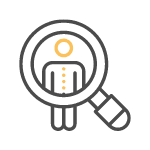
Sudden Cardiac Death (SCD): Causes, Warning Signs & Treatment Options
What does it mean to have sudden cardiac death?
Sudden Cardiac Death (SCD) occurs when the heart stops functioning instantly due to an electrical disturbance. Clinically, the sudden cardiac death ICD 10 code is I46.1, and many cardiac emergencies are recorded using the sudden cardiac arrest ICD 10 reference during hospital documentation. At our heart hospital in Adyar, Chennai, we explain that while a heart attack is caused by blocked arteries, SCD happens due to a severe arrhythmia that prevents the heart from pumping blood effectively..
It can happen to people who already have heart disease or to those who have never had any symptoms before. This is the most common cause of mortality around the world.
Warning Signs of Sudden Cardiac Death
SCD usually happens without notice, although in rare circumstances, signs may show up just before it happens:
- Pain or pressure in the chest
- Breathing problems
- A fast or uneven heartbeat (palpitations)
- Feeling dizzy or fainting (syncope)
When someone gets cardiac arrest, they fall, stop breathing, and lose consciousness. Death happens within minutes if nothing is done right away.
Reasons and Risk Factors
Several heart disorders can lead to sudden cardiac death:
- Coronary artery disease (the obstruction or narrowing of the coronary arteries)
- Previous heart attack (scar tissue interfering with electrical signals)
- Cardiomyopathy (heart muscle that is weak or thick)
- Long QT syndrome and Brugada syndrome are examples of genetic arrhythmia syndromes.
- Heart failure or a poor ejection fraction
- Ventricular fibrillation is a cardiac rhythm that is uncontrolled.
Risk factors include smoking, obesity, hypertension, diabetes, high cholesterol, family history of sudden cardiac death, and age over 35. Regular cardiac health checkups help detect these early and lower the risk.
How Sudden Cardiac Death Is Diagnosed
The main goal of diagnosis is to check the health of the heart and identify any risks of arrhythmia. Doctors might use:
- A physical exam to look for evidence of heart failure, heart sounds, and blood pressure
- An electrocardiogram (ECG) to look for strange rhythms
- Echocardiogram to look at how the heart is built and how it works
- Stress tests to see how the heart reacts when you work out
- Holter monitoring to keep track of the heart’s rhythm all the time
- Genetic testing for inherited syndromes
Management & Treatment Options
Responding to an emergency
Immediate care is very important:
- Cardiopulmonary resuscitation (CPR) maintains blood flowing until aid comes.
- A heart can be restored to a normal rhythm with the use of an AED (Automated External Defibrillator).
Long-Term Management
To stop it from happening again, doctors may suggest:
- Medicines (beta-blockers, anti-arrhythmic medicines)
- Changes to your lifestyle (diet, exercise, quitting smoking)
- A life-saving implantable defibrillator (ICD) for high-risk patients
- Angioplasty or bypass surgery to open up blocked arteries
Consult the best cardiologist in Adyar for personalized treatment and guidance.
When is surgery needed?
If structural abnormalities are making the risk of SCD higher, surgery may be a possibility.
- Coronary artery bypass grafting (CABG) to enhance blood flow
- Surgical ablation for certain arrhythmias
- Putting in a device (ICD or pacemaker)
Living with the risk of sudden cardiac death
Long-term self-care is very important for people who already have heart disease or are at risk of developing it:
- Regular checkups and follow-up tests for the heart
- Adhering to a heart-healthy diet (minimal salt and cholesterol intake)
- Doing safe, doctor-approved physical activity
- Managing stress and getting enough sleep
- Making sure that family members know how to give CPR
Conclusion
Sudden Cardiac Death is one of the most devastating heart problems, and it can happen without warning. Knowing what causes it, spotting early signs, and intervening immediately can save lives. If you or someone close is at risk for heart disease, consult your physician about prevention strategies and schedule regular cardiac checkups. And don’t forget that understanding CPR and how to use an AED could save someone’s life.
Call Now or Schedule Appointment.
Frequently Asked Questions (FAQ)
The ICD-10 code for sudden cardiac death is I46.1. In many emergency cases, cardiac arrest is also documented using the sudden cardiac arrest ICD-10 reference to classify life-threatening rhythm disturbances.
Yes, in many cases it can be prevented with early diagnosis, lifestyle modifications, medications, and devices like an ICD for high-risk patients. Treating underlying heart conditions such as coronary artery disease or cardiomyopathy also reduces the risk.
Call emergency services immediately, start CPR, and use an AED if available. Quick action within the first few minutes is the most effective way to restore heart rhythm and prevent sudden cardiac death.
Contact Us
Appointments
Emergency
MGM - Malar Adyar
Old No. 52 New No. 111, 1 st Main Road, Gandhi Nagar, Adyar, Chennai – 600020
At MGM Malar - Adyar Hospital, our philosophy centers on alleviating the apprehension associated with illness. Recognizing that confronting health challenges entails both physical and emotional struggles, our devoted team is steadfast in delivering outstanding healthcare to enhance your overall wellness and alleviate the stress that accompanies medical conditions. Situated in the heart of the city with a 141-bed facility, we are dedicated to supporting you throughout your healthcare journey.










